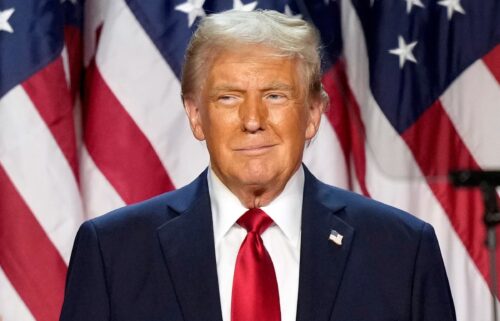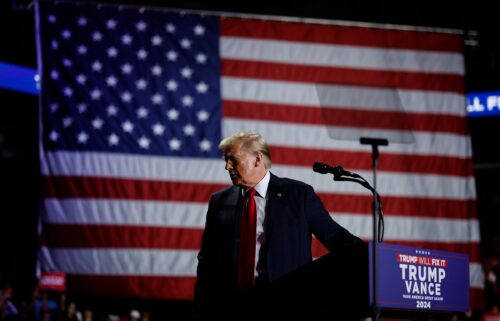How the Supreme Court rules during a pandemic shows what may happen next

By Joan Biskupic, CNN legal analyst & Supreme Court biographer
The Supreme Court on Thursday undermined the Biden administration’s effort to stop the spread of Covid-19 among workers and, equally important, revealed how much conservative justices want the federal government out of American life.
Justices on the right-wing expressed concerns of US agencies regulating “the daily lives and liberties of millions of Americans,” as Neil Gorsuch put it, and that “the Executive Branch already touches nearly every aspect of Americans’ lives,” as Samuel Alito wrote.
“These cases are not about the efficacy or importance of COVID–19 vaccines,” Justice Clarence Thomas added in one of the paired controversies. “They are only about whether (a federal agency) has the statutory authority to force healthcare workers, by coercing their employers, to undergo a medical procedure they do not want and cannot undo.”
RELATED: Day of defeats threatens Biden’s attempt at second year reset
Their views, intensifying in recent years, are likely to result in limits on federal power over public health and safety, labor protections and environmental safeguards. Immediately on the horizon, in cases to be argued in February, are questions about the reach of the Environmental Protection Agency to curtail power plant emissions.
The urgency of the current pandemic, with nearly 1 million Americans killed, failed to entice conservatives to pull back. Rather, the cases offered an opportunity — especially for three justices on the far right — to demonstrate resolve in this area of the law.
At stake are practical questions related to the administration’s efforts to protect public health and the environment, as well as fundamental separation of powers concerns.
The conservative majority led by Chief Justice John Roberts has increasingly restricted regulatory authority, as seen in Thursday’s decision blocking a vaccine requirement for large employers that could have affected an estimated 80 million workers.
But Roberts has not pressed as forcefully as Thomas, Alito and Gorsuch for a wholesale overhaul of federal power. Roberts, in fact, voted separately on Thursday to allow the Secretary of Health and Human Services to impose a vaccine mandate on workers at hospitals and other places that receive federal Medicare and Medicaid funding.
Justice Brett Kavanaugh joined Roberts, along with the court’s three liberal justices, in that decision covering an estimated 10 million health care workers. In dissent were Thomas, Alito and Gorsuch, along with the newest appointee of former President Donald Trump, Amy Coney Barrett.
The paired disputes and shifting votes revealed the conservative-liberal power struggle on this nine-member bench. But they also demonstrated that within the dominant right-wing, three justices — Thomas, Alito, Gorsuch — wield a more muscular approach against traditional agency authority.
Their views could more significantly imperil US regulators, and their inherent expertise, while bestowing more power on the judiciary.
To that point, Justices Stephen Breyer, Sonia Sotomayor and Elena Kagan, dissenting as the majority rejected the Occupational Safety and Health Administration (OSHA) vaccine rule, wrote, “The agency has thoroughly evaluated the risks that the disease poses to workers across all sectors of the economy. … The agency’s Standard is informed by a half century of experience and expertise in handling workplace health and safety issues. The Standard also has the virtue of political accountability, for OSHA is responsible to the President, and the President is responsible to — and can be held to account by — the American public.”
The liberals went on to say, “And then, there is this Court. Its Members are elected by, and accountable to, no one. And we lack the background, competence, and expertise to assess workplace health and safety issues.”
‘Grave danger’ vs. congressional approval
The Biden administration had argued that OSHA’s power to force employers with 100 or more workers to institute a vaccine requirement or weekly Covid-19 testing and masks derived from its statutory authority to protect employees from “grave danger” through exposure to a new hazards and harmful agents.
Spurning those arguments, the court declared in its main opinion that OSHA exceeded its statutory role in workplace safety as it addressed broad public health concerns arising from Covid-19. The majority opinion, which was unsigned, narrowly construed OSHA’s power over “occupational” safety.
It described the Biden rule as a “blunt instrument” that “draws no distinctions based on industry or risk of exposure to Covid-19. Thus, most lifeguards and linemen face the same regulations as do medics and meatpackers.”
The court’s emphasis, that the vaccine rules were “not property tailored to the risks facing different types of workers and workplaces,” reflected a traditionally conservative interpretation.
RELATED: The current Supreme Court’s partisan moment rivals Bush v. Gore
In contrast, the three conservatives who offered a separate concurring statement, wrote more expansively about the limits of agency power and addressed larger constitutional questions of the separation of powers. They touched on themes embraced by the administration of Trump, who sought to diminish the reach of “the administrative state” in his policy agenda and in the selection of judicial candidates.
“If administrative agencies seek to regulate the daily lives and liberties of millions of Americans … ,” Gorsuch wrote, joined by Thomas and Alito, “they must at least be able to trace that power to a clear grant of authority from Congress.”
Gorusch observed that Congress may sometimes be “tempted to delegate power to agencies” to avoid being held accountable for unpopular policies.
But he added, “If Congress could hand off all its legislative powers to unelected agency officials, it would dash the whole scheme of our Constitution and enable intrusions into the private lives and freedom of Americans by bare edict rather than only with the consent of their elected representatives.”
Versions of the debate over Congress’ ability to delegate power to agencies has played out past cases, with liberals often emphasizing that Congress relies on agencies to implement laws in today’s increasingly complex times.
On Thursday, however, the three liberals chose to home in on the immediate cost to the country from the OSHA ruling.
“In the face of a still-raging pandemic,” Breyer, Sotomayor and Kagan wrote in a joint statement, “this Court tells the agency charged with protecting worker safety that it may not do so in all the workplaces needed. As disease and death continue to mount, this Court tells the agency that it cannot respond in the most effective way possible … It undercuts the capacity of the responsible federal officials, acting well within the scope of their authority, to protect American workers from grave danger.”
The-CNN-Wire
™ & © 2022 Cable News Network, Inc., a WarnerMedia Company. All rights reserved.


